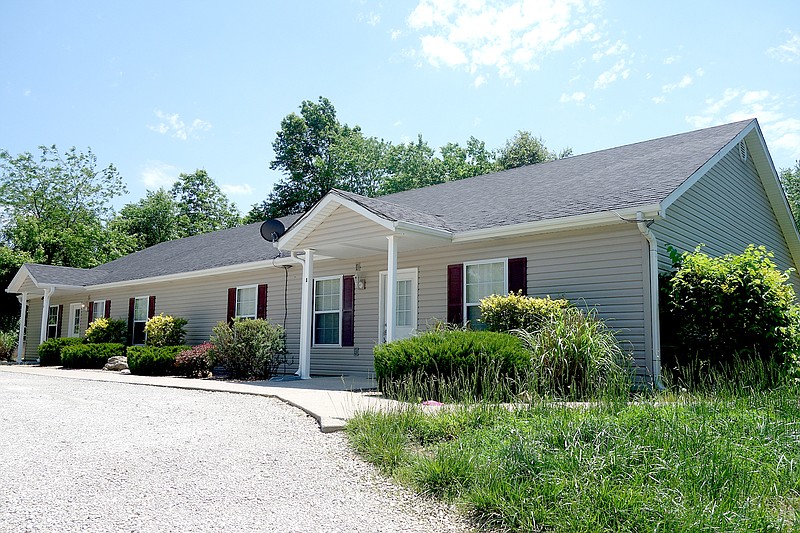FULTON, Mo. - The group home where a developmentally disabled man had been staying before his body was found April 24 in a storage unit repeatedly failed to provide required documents to the county, according to Callaway County Special Services officials.
Carl DeBrodie, 31, resided at Second Chance-run care homes between about 2010 and his disappearance, reported to police April 17. His remains were found in a storage unit in Fulton. Police Chief Steve Myers confirmed the body was badly decomposed, meaning DeBrodie may have been missing for months. Autopsy results are not yet available as the state office is backed up with cases, law enforcement officials said.
On Tuesday, Myers said the FBI, the state Department of Health and Human Services, the Missouri attorney general's office, the Callaway County Sheriff's Department and the Highway Patrol are helping with the investigation.
In response to a Sunshine Law request, Special Services officials provided documentation related to its monitoring of Second Chance's residents. Some, including DeBrodie, had their case management handled by Special Services.
Any protected health information, including identities of employees who could be used to identify individual clients, has been redacted from that information, according to Executive Director Julia Kaufmann.
MONITORING VISITS CANCELLED
Documents from the Department of Mental Health state residents of Individualized Supported Living homes should receive monthly visits from their case managers.
"In residential services, (case manager visits) are a monthly, face-to-face visit," Kaufmann said. "(DeBrodie's case manager) went to Second Chance every month, but admitted she didn't always see Carl. She was told that at times that he was out on outings, but you should always go back."
Special Services documents report that sometimes, service monitoring couldn't be completed because Second Chance kept cancelling appointments.
In 2015, service monitoring for at least one client didn't occur in January, February, March, April, May, June, July, November and December.
One client, whose name was redacted, was missed five months in a row because "Service Monitoring visits (had) been scheduled and cancelled on numerous occasions by Second Chance staff." This information comes from the Action Plan Tracking System, a database shared with the Department of Mental Health, and Special Services's support monitoring guides.
"(DeBrodie's case manager) is no longer employed with us," Kaufmann said.
Also, she added, all case managers at Special Services are being retrained in case manager guidelines and documentation.
MISSING DOCUMENTATION
As far as Second Chance's responsibilities go, each client should have been visited by a community registered nurse contracted by the ISL provider, providing documentation of these visits to Special Services. In addition, Second Chance should have sent "provider monthly reviews" to Special Services.
Often, Special Services failed to receive these documents on time - or at all.
"I don't think it's common to have repeated instances," Kaufmann said. "(However,) I don't have many providers to compare with."
Action Plan Tracking System documents show in the first four months of 2017, Second Chance failed to submit:
Four monthly provider reviews and four registered nurse summaries for January by the quarterly review due date.
Two monthly provider reviews and two registered nurse summaries for February by that same date.
The documents are loaded with other examples of delayed and missing documentation, including daily notes, which ISL providers are required to keep on all clients who receive Medicaid. Kaufmann and other Special Services employees were frustrated with Second Chance, she said.
"(Before DeBrodie's disappearance) we met with the Department of Mental Health and asked for assistance with what to do about this provider," Kaufmann said. "We didn't meet our own expectations either, but we were reporting the difficulties."
IMPROVEMENTS PLANNED
According to Kaufmann, Special Services is already working to make sure vulnerable clients like DeBrodie don't slip through the cracks again.
"We've responded with a review of our own," Kaufmann said. "We contacted everyone on the identified case load to check if there's anything they needed or any follow-up required."
Special Services has also been contacting the families of clients to see if they're satisfied with their case management and to ensure they'd seen the clients recently.
"We also hired our part-time nurse as full-time," Kaufmann said. "She will be assisting with quality assurance."
In addition, Special Services has returned all the funding DeBrodie's case manager received from Medicaid to the Medicaid authorities, she said.
Kaufmann said if caregivers, family members or friends of clients have concerns, they should contact Special Services officials at 573-642-1792. In cases of potential abuse or neglect, Missouri's adult abuse and neglect hotline is 1-800-392-0210.


